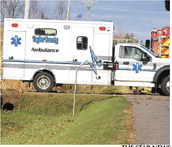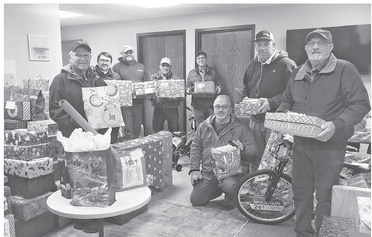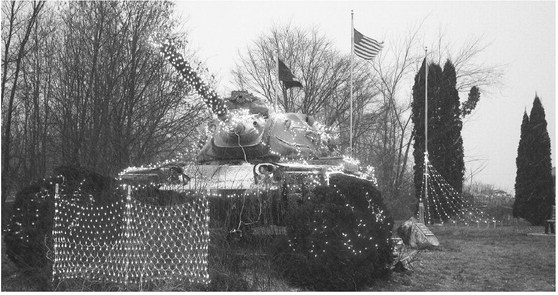Company needs to prove mining won’t poison water
Vox Pop
Recently, U.S. Department of Interior Secretary Deb Haaland made a very significant and historic sciencebased decision to protect the waters of two of our nation’s most treasured recreation areas. This decision places a 20-year moratorium on toxic mining of federal land in the headwaters of the Boundary Waters Canoe Area Wilderness and Voyageurs National Park. Also, in his January 24th State of the State address, Governor Tony Evers emphasized the urgency of cleaning up PFAS contamination in Wisconsin’s waters. Both Secretary Haaland’s action and Governor Evers’ stated commitment to protect our water spotlight the need to address one of the most crucial issues of our time, one that should immediately turn our attention to the same concerning issue unfolding in our own back yard, that is, GreenLight Metals’ intent to drill, with hopes of ultimately opening a sulfide mine, at the Bend deposit in our Chequamegon-Nicolet National Forest north of Medford.
Sulfide mining operations present numerous potential contamination hazards to water, from PFAS to acid mine drainage to ecosystem disruption. The Bend deposit is situated amidst a swamp, in close proximity to flowages, streams, and rivers, some very close to the groundwater. The interplay of these waters is intricate and extensive. Were they to be contaminated, an enormity of destruction would result - to Indigenous rice beds, recreation areas, the beauty of the land, the value of homes close by, etc., etc, and to our drinking water. Currently, the Wisconsin DNR and GreenLight Metals are engaged in a back-and-forth process of examining a multitude of safety concerns related to the Bend exploratory drilling process. That is necessary and welcome. Also necessary is access to information about this process for those who will be impacted by GreenLight Metals’ plan as well as the opportunity to weigh in concerns.
The Interior Department’s decision did not happen without our Minnesota neighbors having organized around their need to save their water, lobbying their elected officials, and demanding that their water remain untouched by mining interests. Even before this decision, their members in Congress (unlike our own) introduced and passed legislation to withdraw Federally-controlled public land from mineral extraction activities. This is a great example for the citizens of our state. We too can still take measures to protect our water by taking some simple steps: We can begin by discussing GreenLight Metals intended activity with our friends and neighbors; we can call for a County Board hearing; we can express our concerns to the DNR and to our elected officials and demand that they act to protect our water.
Sulfide mines do not have a convincing safety record, anywhere. Closer to home, mining interests often cite the Flambeau mine as a “model mine.” However, we cannot take their word for it, as twenty-five years after that mine closed, it is still polluting a tributary of the Flambeau River. Although Wisconsin’s “prove it first” mining moratorium was lifted, we should keep in mind that granting approval of a project such as mining rests with the community impacted by that project. Before GreenLight Metals can convince us that their mining activities at the Bend will not poison our water, we must still insist that they prove it first.
— Juliana Reimann, Madison



